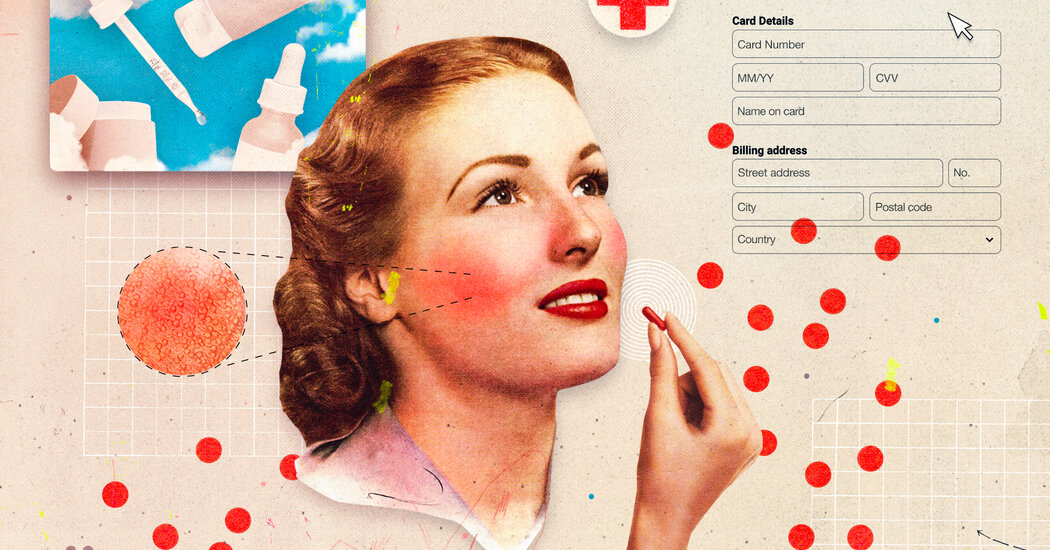
Larissa Jensen, the global beauty industry adviser at the research firm Circana, said the rise of these platforms is driven by consumers who are highly educated about ingredients and who have helped boost “clinical” skin care —- that is, brands started by dermatologists, aestheticians and other experts — over “natural” brands, formulated from naturally derived ingredients. From January to August 2023, according to Circana, sales of clinical skin-care products in prestige stores hit $1.8 billion.
“In 2020, natural brands were the No. 1,” Ms. Jensen said. “Why did that happen? Many of us were home. We were looking for things that worked.”
Vivid before-and-after images are the main selling point in the marketing campaigns of many of these brands. The ads for Musely, a platform that treats skin and hair concerns but specializes in addressing hyperpigmentation on the face and body, show significant transformations. (One stars the founder’s wife, who has melasma.)
Musely, a retooled version of an app called Trusper, has grown from 10,000 patients in 2019 to 600,000 patients today, the company said. It uses only board-certified dermatologists to write prescriptions, and charges $20 for a consultation and about $80 for a two-month supply of a prescription. (Some companies rely on a mix of dermatologists, physicians who are not dermatologists, and physician assistants to write prescriptions, depending on state regulations.)
Mr. Jia of Musely said that more doctors want to work for him than he has positions for. Why? Better pay and hours. Take Dr. Brandon Kirsch, the chief science officer of Musely and a prescribing dermatologist for the company, who also maintains his own private practice in Naples, Fla. Dr. Kirsch said he makes 70 percent of his income from Musely and 30 percent from his practice and likes the balance his work-from-home life now provides.
“I have a 4- and 2-year-old,” he said. “There’s nothing I’d rather do than be with my family.” He is unconcerned about any lack of prestige in working for a telehealth company.
“It’s kind of like online dating,” Dr. Kirsch said. “It had a stigma. But now it’s the norm.”






